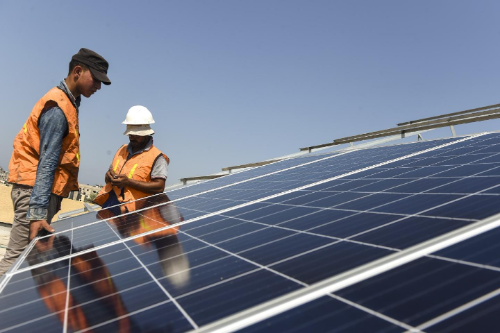Burkina Faso Advances Solar Ambitions with €6M for Dédougou Plant

TLDR
- Burkina Faso will build an 18-megawatt solar power plant in Dédougou with €6 million in financing from the Sustainable Energy Fund for Africa (SEFA)
- The project supports the AfDB’s Desert to Power initiative, aimed at transforming the Sahel into the world’s largest solar energy zone
- The solar plant will operate under a 25-year power purchase agreement with Burkina Faso’s national utility, SONABEL
Burkina Faso will build an 18-megawatt solar power plant in Dédougou with €6 million in financing from the Sustainable Energy Fund for Africa (SEFA), a fund managed by the African Development Bank (AfDB). The project supports the AfDB’s Desert to Power initiative, aimed at transforming the Sahel into the world’s largest solar energy zone.
Announced on July 18, 2025, in Paris, the financing package includes a €2.5 million concessional loan, a €3.5 million repayable grant, and additional loans from FMO, the Dutch development bank. Developer Qair and legal advisors A&O Shearman and Trinity are also involved in the project.
The solar plant will operate under a 25-year power purchase agreement with Burkina Faso’s national utility, SONABEL. The project is the second by Qair in Burkina Faso, following a 24 MW plant launched in Zano in 2023.
Daba is Africa's leading investment platform for private and public markets. Download here
Key Takeaways
Burkina Faso’s Dédougou solar project reflects a broader trend in West Africa—private sector-led renewable energy development backed by blended finance and long-term offtake agreements. With support from SEFA and FMO, the project showcases how concessional finance can catalyze private investment in regions facing energy access challenges. The 25-year power purchase agreement with SONABEL provides long-term revenue certainty, essential for investor confidence. Qair’s expanding footprint highlights how independent power producers (IPPs) are taking a leading role in Sahel’s energy transition. By integrating environmental and social safeguards, the project also sets a precedent for sustainable development in fragile ecosystems. For Burkina Faso, this solar expansion contributes to lowering electricity costs, enhancing grid stability, and supporting industrial growth—all while reducing dependence on fossil fuels. If replicated, such models could accelerate energy access across the region.

Next Frontier
Stay up to date on major news and events in African markets. Delivered weekly.
Pulse54
UDeep-dives into what’s old and new in Africa’s investment landscape. Delivered twice monthly.
Events
Sign up to stay informed about our regular webinars, product launches, and exhibitions.




